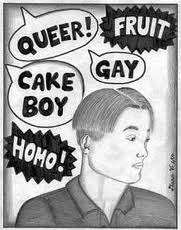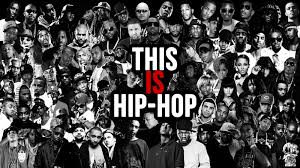I spent more than an hour to find examples of teens talking about teen related topics. I think teenagers are like any other groups that share their opinions and feelings with other people in the internet.
I found videos about bullying interesting. In one of the videos a teenager was talking about his cousin and how he was bullied. In the second video a group of high school students created a series of skits and sketches to prevent bullying in their school. This project was very creative and showed their sensitivity for bullying.
Bullying is a serious problem in our schools. As we discussed "Adolescent Masculinity, Homophobia and Violence" in class, the understanding of masculinity in the dominant white middle class culture is an important factor in bullying. Also as we saw in the TV series Glee, most of the times adults, such as teachers and administrators do not do anything to prevent bullying. Nevertheless, the videos I share here shows that teenagers are concerned about bullying and how it affects their friends and relatives.
Monday, April 29, 2013
Sunday, April 14, 2013
Glee
I watch Glee when I have time. For
this assignment I watched the three episodes, “Pilot”, “Never Been Kissed”, and
“Furt”. The first assumption of this class is “media matters”. I think teachers
and parents must pay attention to what children and teenagers are watching on
T.V. Glee like many TV programs for teenagers gives certain messages. In these
three episodes we can see that the television series Glee want to include
characters who are from different racial / ethnic backgrounds, physically handicapped,
and people with Down’s syndrome, gay and lesbian people. Since we live in a
diverse society T.V. series must reflect that. Teenagers who watch Glee would
learn about these experiences.
The second assumption of the course
is “youth is a culturally constructed category.”
In all three episodes of the Glee
we can see what is expected from adults, teachers, parents, and teenagers in
middle class American culture. For example in the Pilot episode Will Schuester
almost changed his career that he liked very much to make more money for his
family. However, one of his colleagues convinced him that he should continue
teaching, because he has a passion for it. Also in the episode “Furt” the girl
members of the Glee club asked their boyfriends to stand up for Kurt. If a
friend is bullied that it is not acceptable, the viewers will understand that
message.
The third assumption of the course
is “teenagers are not some alien life form.” The TV series Glee shows that
teenagers are living in the same society with adults. Their thinking and
behaviors are affected by adults. For example in all episodes, Kurt was
bullied, however the adults in the school did not or could not do anything,
especially the administration and he transferred to another school. As we read
in our class about bullying and masculinity these are serious issues in our
culture.
What can adults do to stop bullying? 





Monday, April 8, 2013
Sunday, April 7, 2013
Argument Hip Hop
The author Tricia Rose argues that both defenders and "haters" of Hip-Hop are wrong about the role and effects of Hip Hop. In her TED talk Rose explains the historical and cultural environment that Hip Hop was born into in the mid 1970's. According to her, urban areas were left by white people. Africa Americans couldn't find employment and had to live in very impoverished places. This created a new kind of segregation and Hip Hop was born in that environment. Hip-Hop was affected by African-American culture which is mostly based on "communication" and "conversation" modes. Racism in North America affected people's lives and culture. Their experience was not studied and because of this we don't know munch about the causes of violence and other negative experiences.
Also the new technologies in recording and music gave new tools to the artists to use other people's songs and music and combine them with their own responses. They were able to use pre-recorded music and taking sections from them for a new song. Because of this Hip-Hop comes from African American culture and must be studied and its development must be supported.
Rose criticizes the defenders of hip-hop, because according to her "they are wrong about gender and sexism." On the other hand "haters" are wrong about issues of violence and culture. The author proposes that Hip-Hop can stop giving sexist messages, instead it can focus on other aspects of African American experience. Understanding each others experience must be our goal. Also "haters" of Hip-Hop should realize that violence is the result of destabilized community lives and Hip -Hop does not create the violence. If we want to stop violence, we must understand the racism and economic and social conditions that causes destabilization of communities. This will also help to decrease sexism and other negative influences in the culture.






Also the new technologies in recording and music gave new tools to the artists to use other people's songs and music and combine them with their own responses. They were able to use pre-recorded music and taking sections from them for a new song. Because of this Hip-Hop comes from African American culture and must be studied and its development must be supported.
Rose criticizes the defenders of hip-hop, because according to her "they are wrong about gender and sexism." On the other hand "haters" are wrong about issues of violence and culture. The author proposes that Hip-Hop can stop giving sexist messages, instead it can focus on other aspects of African American experience. Understanding each others experience must be our goal. Also "haters" of Hip-Hop should realize that violence is the result of destabilized community lives and Hip -Hop does not create the violence. If we want to stop violence, we must understand the racism and economic and social conditions that causes destabilization of communities. This will also help to decrease sexism and other negative influences in the culture.
Monday, April 1, 2013
Subscribe to:
Posts (Atom)